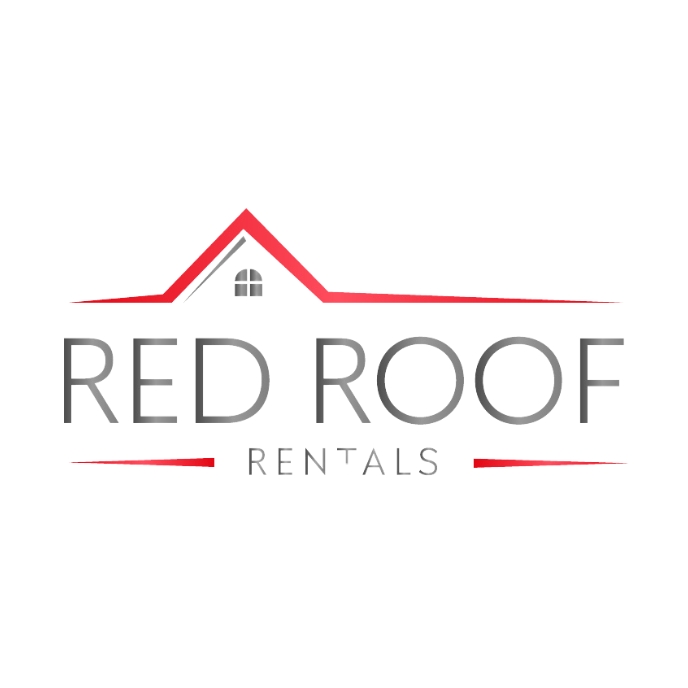Mastering Property Management in Tacoma: Essential Tips for Success in the Evergreen State
Understanding the Tacoma Rental Market
Tacoma, nestled in the heart of the Puget Sound region, boasts a diverse and dynamic rental market. The city’s unique blend of urban and suburban areas offers a wide range of housing options, from downtown apartments with stunning waterfront views to charming single-family homes in quieter neighborhoods. This variety attracts a broad spectrum of tenants, including young professionals, families, and retirees. Understanding the demographics and preferences of your target tenant group is crucial to positioning your property effectively within the market.
Demand for rental properties in Tacoma is influenced by several factors, including its proximity to Seattle, a robust job market, and the presence of several institutions of higher learning, such as the University of Washington Tacoma. The area's growth and development have further spurred interest in rental properties, with new construction projects continually reshaping the market landscape. Staying abreast of these trends and adjusting your strategies accordingly can help you maintain occupancy and achieve competitive rental rates.
Another critical aspect of the Tacoma rental market is the seasonality of demand. Rental activity typically peaks during the warmer months when families are less encumbered by school schedules and the weather is more conducive to moving. However, understanding the nuances of Tacoma’s micro-markets—such as the differences between downtown and suburban areas—can help you anticipate demand fluctuations and plan your leasing strategies more effectively. By keeping a pulse on local market conditions, you can make informed decisions that enhance your property's attractiveness and profitability.
Key Regulations and Laws Affecting Property Management
 (S).jpg)
Navigating the legal landscape of property management in Tacoma requires a thorough understanding of both state and local regulations. Washington State has comprehensive landlord-tenant laws designed to protect the rights and responsibilities of both parties, and Tacoma has additional ordinances that property managers must abide by. Familiarizing yourself with these laws is essential to avoid legal pitfalls and ensure a harmonious landlord-tenant relationship.
Washington State mandates specific guidelines for lease agreements, security deposits, and eviction procedures. For instance, landlords must provide a written lease agreement that outlines the terms of tenancy, including rent amount, payment due dates, and lease duration. Additionally, there are strict regulations governing the handling and return of security deposits, which must be documented meticulously and returned within 21 days of a tenant’s move-out, barring any justified deductions for damages.
Tacoma has also implemented unique regulations aimed at preserving affordable housing and protecting tenant rights. The city’s Just Cause Eviction Ordinance, for example, requires landlords to provide a legitimate reason for terminating a tenancy, such as non-payment of rent or violation of lease terms. This ordinance is part of a broader effort to prevent arbitrary evictions and promote housing stability. Keeping abreast of such local regulations and any updates to state laws is crucial for compliance and fostering trust with your tenants.
Building a Strong Landlord-Tenant Relationship
A successful property management strategy hinges on cultivating positive relationships with your tenants. Open, transparent communication is the foundation of a strong landlord-tenant relationship. From the outset, it’s important to set clear expectations regarding rent payments, maintenance responsibilities, and house rules. Providing a comprehensive welcome packet that includes the lease agreement, contact information, and emergency procedures can help tenants feel more comfortable and informed.
Regular communication should not be limited to addressing issues or collecting rent. Proactively reaching out to tenants to check on their satisfaction and address any concerns can prevent small problems from escalating into major disputes. Utilizing technology, such as property management software, can streamline communication processes and ensure that tenants’ inquiries are handled promptly and efficiently. This approach not only enhances tenant satisfaction but also fosters a sense of community and trust.
In addition to effective communication, responsiveness in handling maintenance requests is critical. Tenants value a landlord who is prompt and efficient in addressing their needs, particularly when it comes to repairs and maintenance. Establishing a reliable network of contractors and service providers ensures that maintenance issues are resolved quickly and professionally. By demonstrating a commitment to maintaining the property and attending to tenants’ needs, you can build long-term relationships and reduce turnover rates.
Effective Property Marketing Strategies
Marketing your rental property effectively is key to attracting high-quality tenants quickly. In today's digital age, leveraging online platforms is essential for reaching a broad audience. Listing your property on popular rental websites, social media platforms, and your own property management website can significantly increase visibility. High-quality photos, detailed property descriptions, and virtual tours can make your listings stand out and attract more inquiries.
Understanding your target demographic is crucial for tailoring your marketing efforts. For example, if you’re targeting young professionals, highlighting proximity to public transportation, nightlife, and job centers can be appealing. On the other hand, if your property is family-oriented, emphasizing good school districts, parks, and community amenities can be more effective. Crafting your marketing message to resonate with your ideal tenant profile can lead to faster lease-ups and better tenant retention.
Traditional marketing methods should not be overlooked either. Signage, flyers, and word-of-mouth referrals can be highly effective, especially in tight-knit communities. Networking with local businesses and community organizations can also provide valuable exposure for your rental property. Offering referral incentives to current tenants can encourage them to spread the word about available units, creating a win-win situation. Combining digital and traditional marketing strategies can maximize your property’s exposure and attract a diverse pool of potential tenants.
Maintenance and Upkeep Best Practices
Regular maintenance and upkeep are vital to preserving the value of your property and ensuring tenant satisfaction. A proactive approach to maintenance can prevent minor issues from becoming costly repairs. Implementing a routine inspection schedule allows you to identify and address potential problems early. Common areas to focus on include plumbing, electrical systems, HVAC units, and the building’s exterior.
Creating a maintenance checklist and adhering to a seasonal upkeep schedule can streamline the process. For instance, spring and fall are ideal times for inspecting roofs, gutters, and HVAC systems, while winter preparation might involve ensuring proper insulation and checking for drafts. Documenting all maintenance activities and keeping detailed records can help you track the condition of your property over time and provide proof of compliance with safety regulations.
In addition to regular maintenance, promptly addressing tenant repair requests is essential. Providing an easy-to-use maintenance request system, such as an online portal, can facilitate efficient communication and quick resolution of issues. Partnering with reliable contractors who offer fair pricing and quality work is also crucial. By maintaining your property to a high standard and responding swiftly to repairs, you demonstrate a commitment to your tenants’ well-being and can enhance their overall living experience.
Utilizing Technology in Property Management
.webp)
Technology has revolutionized the property management industry, offering tools that can streamline operations and improve tenant satisfaction. Property management software is a game-changer, providing a centralized platform for handling everything from lease agreements and rent collection to maintenance requests and tenant communication. These platforms can save time, reduce errors, and offer valuable insights through reporting and analytics.
One of the most significant advantages of property management technology is the automation of routine tasks. Automated rent reminders, lease renewals, and maintenance scheduling can reduce the administrative burden and ensure nothing falls through the cracks. Online payment systems also offer convenience for tenants and can improve on-time rent collection rates. By embracing technology, you can enhance efficiency and free up time to focus on more strategic aspects of property management.
Another technological advancement that can benefit property managers is the use of smart home devices. Installing smart locks, thermostats, and security systems can enhance the appeal of your rental property and offer added convenience for tenants. Additionally, these devices can provide energy savings and improve security, contributing to tenant satisfaction and retention. By staying informed about the latest technological trends and integrating them into your property management practices, you can maintain a competitive edge in the Tacoma rental market.
Financial Management for Property Owners
Effective financial management is critical to the success of any property management endeavor. Keeping accurate and detailed financial records enables you to track income and expenses, monitor cash flow, and make informed decisions. Utilizing property management software with robust accounting features can simplify financial tracking and reporting. Regularly reviewing financial statements and conducting audits can help you identify trends, spot potential issues, and ensure compliance with tax regulations.
Budgeting is a fundamental aspect of financial management. Creating an annual budget that accounts for all expected income and expenses, including mortgage payments, property taxes, insurance, maintenance, and repairs, can provide a clear financial roadmap. It’s also wise to set aside a reserve fund for unexpected expenses, such as emergency repairs or vacancies. By planning ahead and maintaining a financial cushion, you can navigate financial challenges more effectively.
Maximizing your property’s revenue potential involves not only controlling expenses but also optimizing rental income. Conducting regular market analysis to ensure your rental rates are competitive can help you achieve optimal occupancy and income levels. Implementing value-added upgrades, such as modern appliances or enhanced amenities, can justify higher rents and attract quality tenants. By diligently managing your finances, you can enhance the profitability and sustainability of your property investments.
Common Challenges in Tacoma Property Management
Despite the rewards, property management in Tacoma comes with its fair share of challenges. One common issue is dealing with tenant turnover, which can be both time-consuming and costly. High turnover rates can lead to lost rental income and increased expenses for cleaning, repairs, and marketing vacant units. Implementing strategies to enhance tenant satisfaction and retention, such as responsive maintenance and community-building activities, can help mitigate this challenge.
Another challenge is navigating the evolving regulatory environment. Keeping up with changes in local and state laws, such as rent control measures, eviction moratoriums, and safety regulations, requires vigilance and adaptability. Non-compliance can result in legal disputes, fines, and reputational damage. Staying informed through industry associations, legal counsel, and continuing education can help you stay ahead of regulatory changes and ensure compliance.
Lastly, managing maintenance and repair issues efficiently can be a significant challenge, particularly for larger properties or those with aging infrastructure. Establishing a reliable network of contractors and service providers, as well as implementing a proactive maintenance plan, can help you address issues promptly and maintain the property’s condition. By anticipating and preparing for these common challenges, you can navigate the complexities of Tacoma property management more effectively and achieve long-term success.
Conclusion: Your Path to Successful Property Management in Tacoma
Mastering property management in Tacoma requires a multifaceted approach that combines market knowledge, legal compliance, effective communication, strategic marketing, diligent maintenance, technological integration, and sound financial management. By understanding the unique dynamics of the Tacoma rental market and staying informed about regulatory requirements, you can position your properties for success. Building strong relationships with tenants, utilizing innovative marketing techniques, and prioritizing property upkeep are essential practices that contribute to tenant satisfaction and retention.
Embracing technology to streamline operations and improve efficiency can provide a competitive advantage, while diligent financial management ensures the sustainability and profitability of your property investments. Anticipating and addressing common challenges proactively can further enhance your ability to manage properties effectively in Tacoma's evolving market.
By implementing the essential tips outlined in this guide, you can elevate your property management game and achieve greater success in this vibrant and dynamic city. Tacoma’s scenic beauty, thriving communities, and growth opportunities make it an attractive location for property investment. With the right strategies and a commitment to excellence, you can ensure your properties thrive and contribute positively to the Evergreen State’s housing landscape.


